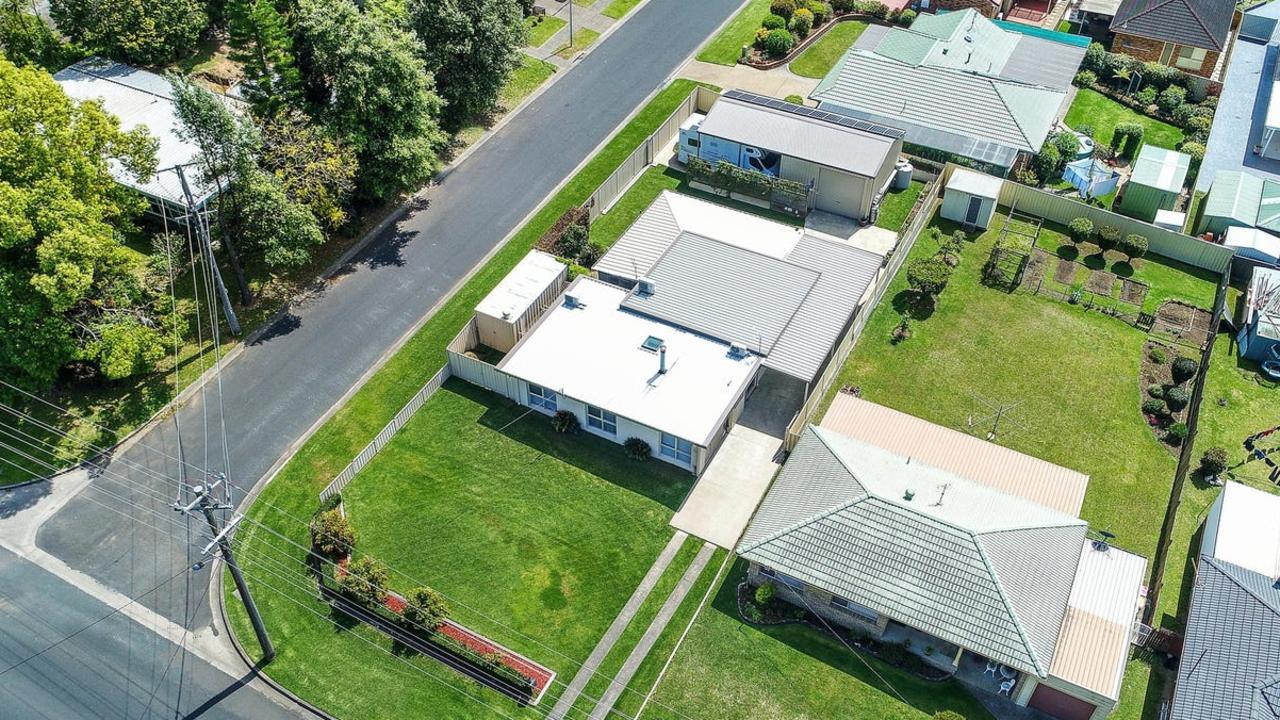‘We can’t give up’: Mogo floods threaten region’s last remaining Aboriginal fishermen
Only a dozen Aboriginal fishermen still frequent the waters of the Eurobodalla, with pressure from floods, fires and government red tape threatening the future of the traditional practice, a sixth-generation fisher says.
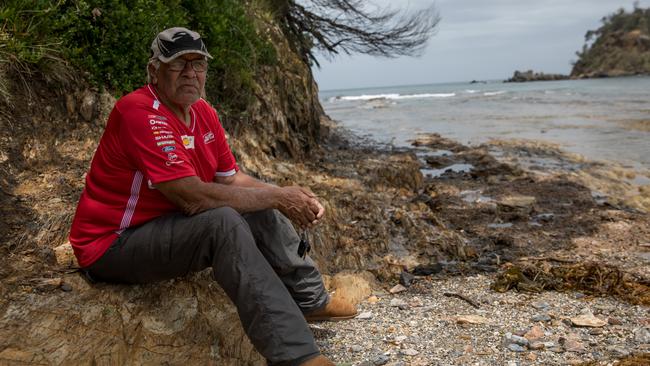
The South Coast News
Don't miss out on the headlines from The South Coast News. Followed categories will be added to My News.
After his boat and fishing nets were destroyed in flash floods that tore through Mogo last month, one of the region’s last Aboriginal fisherman feared his life on the water was over.
For six generations, Andrew “Sam” Nye’s family have fished the waters of the Eurobodalla.
The 71-year-old still uses techniques passed down by his grandfather, patrolling the lakes, creeks and beaches of the region for a range of fish, including salmon.
When heavy rains destroyed many Mogo homes and businesses, Mr Nye was already struggling to make a living after years spent battling encroaching government regulation and natural disasters.
Much of his equipment had already been destroyed in the Black Summer fires, and only months before the flood, the Mogo man had suffered from a stroke.
“But, we can’t give up,” Mr Nye said.
“This land still belongs to us.
“I want to live long to see us get our rights back. Then I will die happy.”
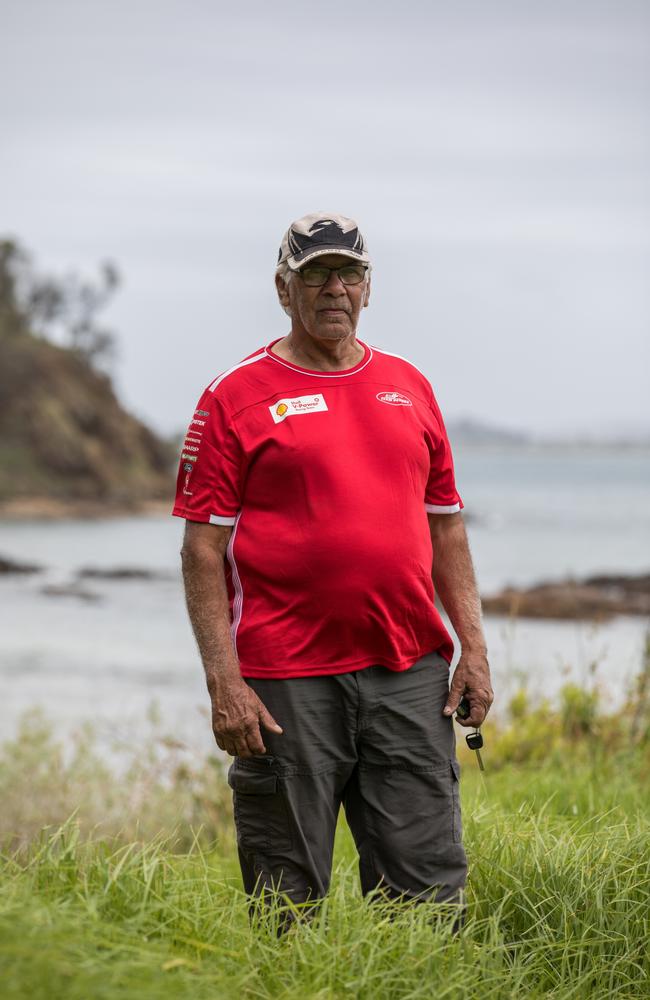
Mr Nye was only 14 when, from their tent on Barlings Beach, near Tomakin, he joined his father fishing full-time.
“I’ve never done much school,” he said.
“I didn’t think I needed an education to be a commercial fisherman.”
In the more than five decades that Mr Nye has made his living on the water, a lot has changed.
He believes there are now only a dozen Aboriginal commercial fishermen that still fish the local waters, which are known as region seven according to NSW fishing laws.
Strict rules regulating when fishermen can operate and the size and substance of their catch have meant many First Nations people like Mr Nye cannot make a living wage, he said.
“My family all used to fish together,” he said.
“They’ve just whittled away now, and I just can’t see what damage that amount of fishermen can do.
“If the fish are there to be caught, we want the opportunity to go onto the beach to catch those fish.”
Mr Nye acknowledged some of the rules were in place to protect fish populations, and said numbers had even grown since he was a child.
“We’d never seen a patch of salmon on the beach like today,” he said.
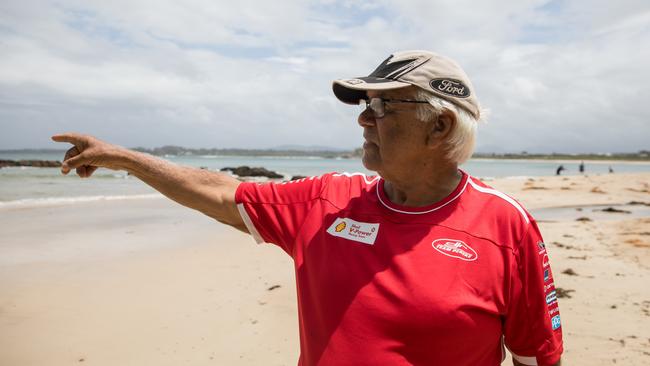
“Up north, you’d never see salmon, and now the place is overrun.
“We’d like to get up to Jervis Bay and catch those salmon, but we can’t. That’s region six, and we’re not allowed to go into region six.
“I think as original owners of this country we should be able to travel wherever we feel.”
Limits on catch sizes are another hurdle for fishermen like Mr Nye who are trying to make a livelihood out of an ancient practise, he said.
Without paying for additional licensing, fishermen are restricted in how many fish they can catch of a given species.
Mr Nye said he’d been forced to abandon catches worth thousands of dollars because he didn’t have the required permit for a catch of that size.
The waters within which they’re allowed to fish are also always shrinking, he said, and often decided upon without proper consultation between fishermen and the government.
“They say they have consultation with the fishermen, but they don‘t,” he said.
“They already have their minds made up, and planned what they’re going to do.”
A fundraising campaign organised by the Mobilising for Mogo group promises to help get Mr Nye back on his feet.
Before donations closed in early-January, the campaign had raised $6565, which Mr Nye said would go toward a new boat, as well as other equipment, including ice boxes.
“I couldn’t thank the people that donated enough,” he said.
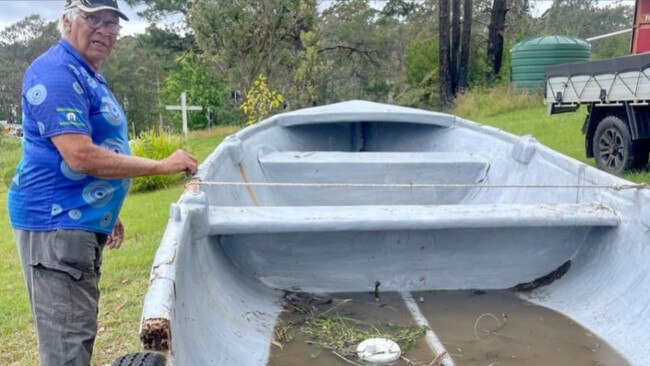
“A lot of them probably don’t even know me.
“It’s unbelievable.”
Unless there was a change in policy, though, Mr Nye said he still feared for his future as a fisherman, and that of other Aboriginal fishermen in the region.
Mr Nye’s son is also a fisherman, with his grandson recently learning the ropes.
“All we want to do is to be left alone and do what we’ve done for generations,” Mr Nye said.
“I don’t think (the government) should have the right to tell me how much money I can make and when I can make it.
“What I want to say to the government now is ‘show me proof of ownership’, and we’ll abide by your rules and regulations.”
Until then, Mr Nye said he plans to continue fighting government regulation.
“This is who I am. I am a fisherman,” he said.
The NSW Department of Primary Industries, which handles fishing regulation, has been contacted for comment, but did not reply in time for this article.



